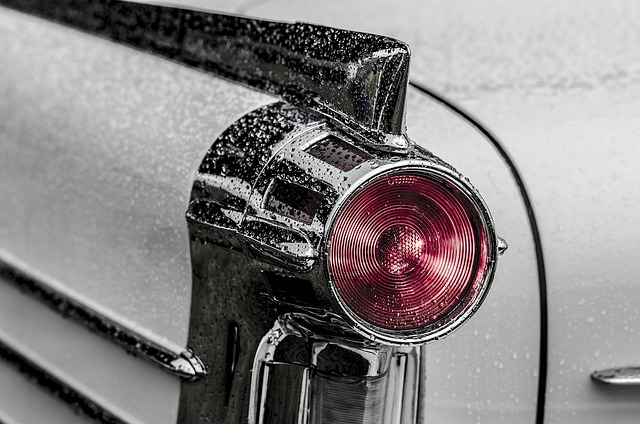In California, a Vehicle Identification Number (VIN) check is mandatory for vehicle buyers and sellers, offering detailed insights into a car's history through its unique 17-character code. This process verifies authenticity, accident records, service history, and potential fraud, ensuring informed decisions and peace of mind. Residents can access this information online or through the DMV, cross-referencing VINs with databases to avoid costly surprises in the vast state automotive market.
“Uncover California’s Top 5 DMV Guidelines for a Seamless Vehicle Identification Number (VIN) Check. This comprehensive guide navigates the essential steps, from understanding VIN’s significance in car ownership to practical tips like accurate data entry and utilizing official DMV resources. Learn how these guidelines prevent fraud, ensure transparency, and streamline registration—your key to a successful and secure VIN verification process.”
- Understanding VIN Number Verification
- – What is a Vehicle Identification Number (VIN)?
- – Importance of VIN check for car ownership in California
- Top 5 DMV Guidelines for VIN Check in CA
Understanding VIN Number Verification

A Vehicle Identification Number (VIN) check is a crucial process for any vehicle owner in California, offering a comprehensive look into a car’s history and authenticity. VIN number verification involves cross-referencing the unique 17-character code with specialized databases to access details such as manufacturing specifications, accident records, service history, and potential theft or fraud flags. This method is widely accepted as an effective way to ensure vehicle integrity and safety.
By utilizing online tools or visiting a local DMV office, California residents can perform this check easily. It’s essential for buyers and sellers to familiarize themselves with the process, especially when considering used vehicles. A simple VIN verification can reveal valuable insights, helping individuals make informed decisions and potentially saving them from costly surprises.
– What is a Vehicle Identification Number (VIN)?

The Vehicle Identification Number (VIN) is a unique code that serves as the fingerprint of every vehicle manufactured worldwide. It’s a 17-character alphanumeric sequence designed to provide accurate and permanent identification for each car, truck, van, or SUV. This number plays a pivotal role in various processes, including vehicle history reports, insurance claims, and, most importantly, vin number verification. By cross-referencing the VIN with specialized databases, one can access crucial information about the vehicle’s past, such as ownership history, accident records, and maintenance logs, ensuring transparency and peace of mind for buyers and owners.
– Importance of VIN check for car ownership in California

In California, just as in many other states, a Vehicle Identification Number (VIN) check is an essential step for any prospective car owner. This unique 17-character code serves as a fingerprint for every vehicle, providing critical information about its history and current status. A VIN number verification allows buyers to uncover potential issues, such as previous accidents, outstanding loans, or undisclosed repairs, ensuring they make informed decisions when purchasing a used car. It’s a crucial step in protecting oneself from fraud and unexpected problems that could arise with a seemingly perfect vehicle.
By conducting a VIN check, California residents can gain peace of mind and confidence in their vehicle purchases. This simple process enables them to cross-reference the car’s details against national databases, confirming its authenticity and ensuring it meets safety standards. It’s an essential guideline for any responsible car owner, as it helps maintain the integrity of the state’s vast automotive market and safeguards consumers from potential scams or misrepresentations.
Top 5 DMV Guidelines for VIN Check in CA

In California, a Vehicle Identification Number (VIN) check is a crucial step in ensuring the authenticity and history of a vehicle. The Department of Motor Vehicles (DMV) offers a comprehensive set of guidelines to facilitate this process efficiently. Firstly, always verify the VIN with the DMV’s official online platform, ensuring accuracy through their secure system. Secondly, when conducting a title search, cross-reference the provided VIN with the one on the vehicle’s documentation and the license plate for consistency.
Thirdly, retain all relevant documents, including purchase records, registration papers, and inspection reports, as these can provide valuable insights into the car’s past. Fourthly, use trusted third-party services or specialized tools designed for VIN number verification to gain access to detailed vehicle histories, including accident reports, ownership changes, and maintenance records. Lastly, be wary of potential red flags, such as discrepancies in mileage or unexpected prior owners, which may warrant further investigation.
In conclusion, the process of VIN number verification is a crucial step for any California car owner, offering vital protection against theft and ensuring vehicle authenticity. By adhering to the top 5 DMV guidelines highlighted in this article, you can efficiently navigate the VIN check procedure, providing peace of mind and enhancing your overall car ownership experience in the Golden State.



